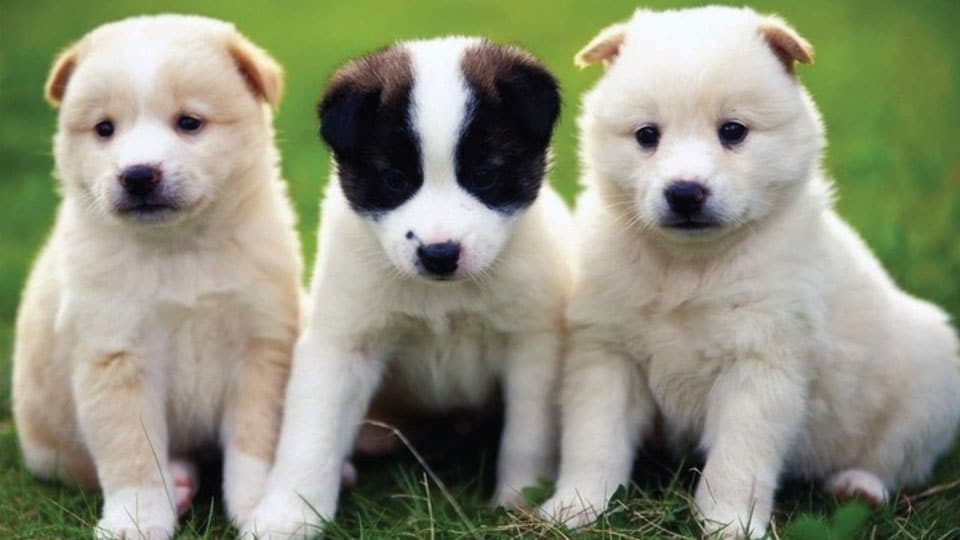By Maneka Gandhi
In this week’s Pet Talk, Maneka explains about the problems & diseases of dogs, cats and birds and solutions to them
How to keep your pet safe during festival season?
Fireworks and crackers during festivals can have severe impact on pets, and special attention is required to minimise that impact. The following are a few tips to keep your pet safe during the festive season:
- Be sure to take your dog out for a walk before the fireworks and other celebrations begin. For cat owners, make sure you call them in before the fireworks start.
- Don’t tie your dogs outside, or leave them in the garden or car during fireworks. Always keep your pets inside when fireworks are being let off.
- Check that all windows, curtains, doors and cat flaps are closed throughout the night.
- It is a good idea to play music, or have the television on to help mask the sounds.
- If your pets are pacing around, meowing, barking, whining or hiding in a corner, let them. They’re just trying to find a safe place. If they’re hiding under your bed, or in a corner, don’t try coaxing them out, instead, act normal and relaxed. However, if a stoke or cuddle helps your pet to relax then it is okay to do that. Just always stay calm and praise calm behaviour, not fearfulness.
- Try not to leave your pets alone on such frightening nights. However, if you do go out, close all curtains and leave either the radio or the TV on to dull the noise of the fireworks. If, when you arrive home, your pets have been destructive, or had an accident, don’t get angry. This will only add to their anxiety and besides, it’s not their fault they’re scared!
- Please don’t take your dogs to firework displays. Although some may not seem frightened, excessive panting and yawning can both be signals of your dog being stressed. Also, remember your dog’s hearing is much more acute than yours, so the loud bangs and whistles can be painful for your dog’s ears.
- If your cats are scared, don’t restrain them. Cats prefer to control how they cope, so let them hide, as this will be where they feel safest.
What kind of diseases can pigeons get?
Common medical problems in pigeons are as follows:
Trichomonas: Very common. Signs: Head-shaking and yellow plaque in the mouth, or the bird may have trouble breathing.
Upper respiratory infections: Various bacterial and viral causes. Signs: Sneezing, nasal discharge on the shoulders where the birds wipes their nares (nostrils).
Chlamydia: Redness or discharge from one or both eyes, or upper respiratory symptoms. Contagious to humans. Report all suspected cases to a veterinarian.
Coccidia: Weight loss, lack of appetite, diarrhoea. Most pigeons have coccidia present in the gastrointestinal tract, and it may cause disease in young or stressed birds.
Diarrhoea: May be due to E.coli, Salmonella (paratyphoid), parasites, viruses.
Paramyxovirus: Watery droppings, loss of coordination, twisted neck.
Poxvirus: Whitish or yellow bumps on head, feet or legs. Spread by mosquitoes.
What to do if your dog dies at home?
If you have enough space for a burial in your garden, or in a public space, dig a pit 4 feet deep, put the dog in without putting salt, cover it and then plant a tree on top. This would be the best way. Or, you can take it to your nearest animal shelter where they might provide burial services.
What to do if your dog injures a toenail?
With a clean cloth or square gauze, apply pressure to the nail for about five minutes. If the bleeding doesn’t stop, wrap your dog’s paw and take him to the vet. Any sign of swelling in the paw indicates infection, and your dog needs veterinary attention. When your dog is in pain, bring him to the vet. Your vet can sedate your pet, remove the torn nail and bandage it properly. The vet might prescribe antibiotics or forestall infection, as well as pain medication. Should an infection reach the bone, your dog’s toe might require amputation.
What is the right way to clean your dog’s ear?
Just like with human ears, you never want to use cotton swabs because they can hurt your dog’s ears. Instead, have a bag of cotton balls ready, or wrap your finger in gauze and use it. You might want to use gloves for the cleaning, but it’s also okay to just wash your hands if no gloves are available. Perhaps the most important tool, though, is the ear rinse. Look for a product which contains no antibiotics, steroids, alcohol, or toxic materials of any kind. To clean your dog’s ears without causing harm, start on the outside and work your way in — but only until you start to feel resistance. If you try to push further in, you can damage your dog’s ear. Wet a cotton ball with ear rinse and wipe the part of the ear that you can easily see, the outer flap.
Then wet a new cotton ball to clean the inner ear. Ideally, do this about once a week. If the cotton balls or gauze are especially dirty, think about scheduling an appointment with your dog’s vet to make sure everything is okay.








Recent Comments